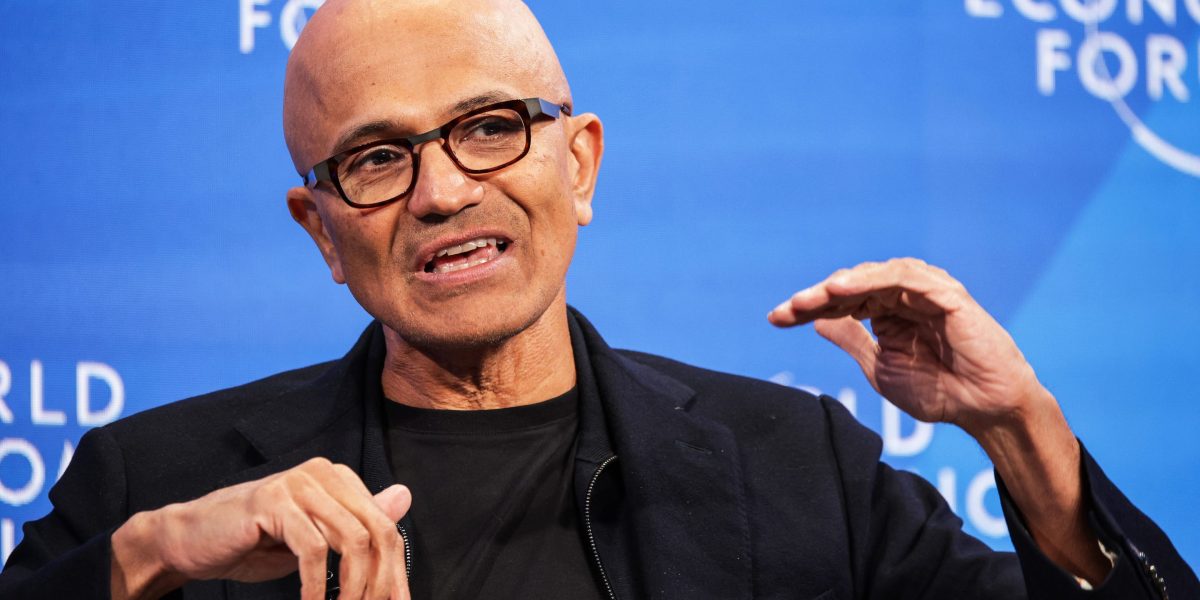
Microsoft has spent billions on the data centers, chips, talent, and other infrastructure needed to build an artificial intelligence empire and it plans to spend billions more. So far, the strategy appears to be working. Following the company’s quarterly earnings report on Thursday, investors sent the company’s stock up 5.5% in after-hours trading and analysts applauded the numbers, with Wedbush’s Daniel Ives in a Friday report calling Microsoft the “#1 AI Draft Pick.” But there’s still something standing in the way of Microsoft’s AI domination.
When asked by an analyst during the Thursday earnings call about when revenue from AI projects will catch up to the billions Microsoft is spending on the technology, CEO Satya Nadella pointed to a needed culture change by business customers.
Implementing AI tools like Microsoft’s Copilot and Azure AI across a company often means upending how businesses have operated for years. “At the end of the day, companies will have to take a process, simplify the process, automate the process, and apply these solutions,” Nadella said. “And so, that requires not just technology, but in fact, companies to go do the hard work of culturally changing how they adopt technology.”
Difficult but necessary culture change is afflicting even executives and employees within Microsoft. “We’re also taking our own medicine to apply this across every process,” he added.
Analysts consider Microsoft to be one of the best-positioned in AI due to its cloud computing business serving customers that use AI and its partnership with ChatGPT-maker OpenAI. But for the investment to pay off, Microsoft needs everyday workers to actually use its technology, which pits the company against human intransigence.
While long-standing work habits are difficult to change, a promising sign for the adoption of AI technology is how workers learned to work from home during COVID, Microsoft 365 general manager Colette Stallbaumer told Fortune last year. The pandemic and subsequent stay-at-home orders required employees to quickly adopt new technologies, like Zoom video meetings, to do their jobs. As a result, people have become accustomed to change in the workplace, she said.
To help learn how to make its technology more attractive, Microsoft has researched how people form new work habits, she said. As of September, the company planned to appoint employees within its customers’ businesses to be “Copilot champions” who can advocate for the use of Microsoft’s virtual assistant, she said.
The last time Microsoft spearheaded a workplace change this big was in the 1990s, when personal computers took off, Nadella said during the earnings call. It will take time for business cultures and processes to shift, but it is also happening faster than ever. Workplaces are adopting Copilot “faster than any suite we have sold in the past,” he said.
For the earnings report covering the first three months of 2024, all eyes were on the performance of Microsoft’s cloud computing platform Azure. Last quarter, Azure’s business grew 30% year over year, of which six percentage points came directly from customer demand for AI products. Higher-than-expected growth continued this quarter. Azure sales grew 31% from the same time last year, with AI said to be responsible for seven of those percentage points.
Microsoft’s company-wide revenue increased 17% from the same quarter last year to $61.9 billion. Profits rose 20% from the year-ago number, to $21.9 billion.
The stock was at $410 per share in mid-day trading on Friday, up 2.8% from Thursday’s close and down slightly from after-hours trading on Thursday.
